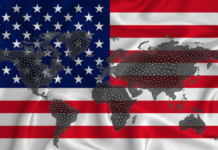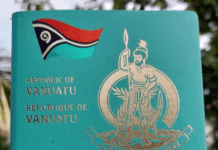
A descendant of one of the original translators of New Zealand’s Treaty of Waitangi says the guarantees of the Treaty have not been honoured.
A group, including 165 descendants of Henry and William Williams, has collectively submitted against the Treaty Principles Bill, saying it was a threat to the original intent and integrity of te Tiriti.
Bill submissions reached a record of more than 300,000 on Tuesday night with Parliament’s Justice Select Committee extending the deadline for a week until 1pm, Tuesday, January 14, due to technical issues with the overloaded website.
- READ MORE: Bill would ‘render the treaty worthless’ – world reacts to national Hīkoi
- Other Te Tiriti o Waitangi reports
The Williams brothers translated te Tiriti o Waitangi and promoted it to Māori chiefs in 1840.
William William’s great-great-great grandson, Martin Williams, told RNZ Morning Report they want to see the promises of the treaty upheld.
“Fundamentally, it’s time that we as Pākeha stood up and be counted . . . we prefer a future for our nation that isn’t premised on the idea that Māori were told a big lie in 1840.”
“It’s very concerning that the Waitangi Tribunal has described this bill as the worst, most comprehensive breach in modern times so it’s time for us to stand up and be counted and stand alongside tangata whenua.
‘We need to honour Te Tiriti’
“We need to honour Te Tiriti, not tear it up and scatter it to the wind.”
The two version of the Treaty — English and Māori — have become the source of debate and confusion over the intervening centuries because of varying content and wording.
Williams said his ancestors had faithfully followed the instructions of Governor Hobson and James Busby when translating the Treaty into te reo Māori.
“We don’t think that there was anything wrong about the way the Treaty was prepared and Henry did it under enormous time pressure, but the outcome was exactly as intended by those instructing him.”
“In essence, the Crown was conferred the right to govern for peace and good order and Māori retained their full rights as chiefs, Tino Rangatiratanga.
“That was the essence of the bargain and we’re wanting that bargain because that was the version that was signed by Māori to be honoured today, and we think it can be. If it is the future for our nation is bright, and if it isn’t the opposite applies.”
Williams said he and his whānau disagreed that the bill would make all New Zealanders, including Māori, equal under the law.
‘Equality’ not a Treaty principle
“Ask Māori who are involved in abuse in state care, whether they enjoyed equal rights during that time of their lives.”
“Equality before the law is a great legal principle, but it’s not a Treaty principle.”

“Māori very much, I think, as a result of systemic breach of the Treaty by the Crown again over decades are in a position where they have to start from way behind the line to have any hope of catching up with Pākeha for things that they take for granted.”
Williams said equity and equality were not the same thing.
The bill’s architect, Minister for Regulation David Seymour, argues the interpretation of the Treaty principles has been developed through the Waitangi Tribunal, courts and public service, and “New Zealanders as a whole have never been democratically consulted on these Treaty principles”.
Purpose to ‘provide certainty
The principles have been developed to justify actions many New Zealanders feel are “contrary to the principle of equal rights”, he says, including co-governance in the delivery of public services.
The purpose of the bill, says Seymour, is to provide certainty and clarity and to “promote a national conversation about their place in our constitutional arrangements”.
ACT would argue the principles have a very influential role in decision-making, political representation and resource allocation that has gone too far. Seymour believes it is necessary to define the principles “or the courts will continue to venture into an area of political and constitutional importance”.
People have expressed frustration and outrage this week after persisent technical issues stopped them from submitting online feedback about the bill before the midnight on Tuesday night deadline.
This article is republished under a community partnership agreement with RNZ.












































